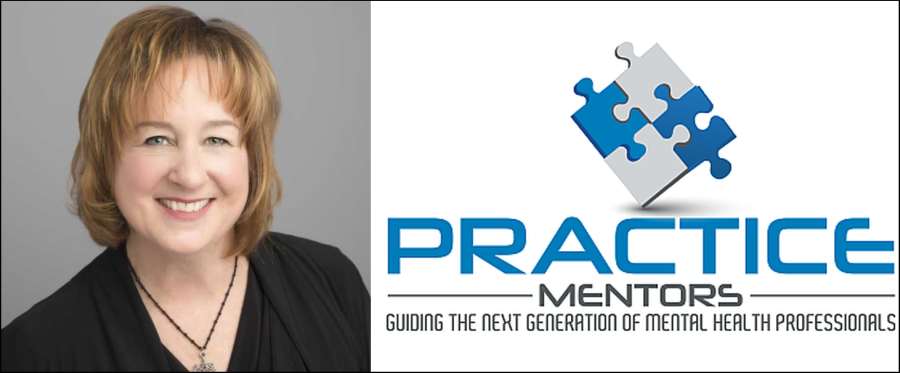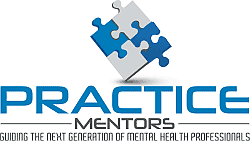7 Things Hurting The Counseling Profession

7 Things Hurting The Counseling Profession
2020 is nearing an end and I think we can all agree that this year has been one ginormous nightmare. As I have watched this year unfold I have seen what COVID has done to our profession as a whole and I don't like what I'm seeing. I'd like to share my Top 7 concerns with you, "7 Things Hurting The Counseling Profession", then offer some positive thoughts.
1. Insisting upon seeing people virtually is robbing them of the direct, personal experience to which they are entitled.
Pre-pandemic, the human connection we offer as counselors was what made us unique. That major attribute is now being treated as commodity. There are some things that will always need to be done in-person; seeing clients so you can read their faces, reactions and emotions is one of them. Just being in the same room can really help the therapeutic process, allowing a human connection to occur during the time when the client needs it the most.
A client may think he/she knows what's suitable for a proper treatment environment but you're the professional counselor and it's up to you to inform the client what's best for them (we're not even talking about what's best for defending your professional back-side!) and then do your best to steer the course of action in that direction.
2. The, “environment of fear”, has made some of us lazy practitioners.
Under normal circumstances you wouldn't, and should not, be working from your home (safety and liability issues). COVID promoted a little-used treatment channel, the telehealth option. Even though we were deemed, “essential”, (could see people in the office) many took the virtual route anyway. Now, it has given many a, “reason”, to work from home and take the opportunity to go 100% virtual. We need to get back to face-to-face as quickly as possible.
3. Virtual is a regressive stop-gap, not an incremental improvement in the delivery of our professional services.
Let me be clear.....face-to-face is always going to be best. Telehealth treatment delivery is better than no treatment at all but it is a distant second in my experience and should never be used as the default primary treatment environment. Seeing clients virtually will never be a mental health best-practice, it can't be.
Yes, there will be a small slice of the population that will INSIST on virtual sessions, but what I'm saying is that we should not be the ones insisting upon virtual as the only option. Let people get back out if they want to and you provide a safe and clean environment for them.
I am personally hearing from both insurance and EAP companies on a daily basis who are looking for providers who are willing to see clients face to face. Their clients are demanding a face-to-face option.
The reluctance of a great number of providers to reclaim their primary care environment is putting a stain on our profession and additional stress on those we serve.
4. People are starving to get back out and want to get back to normal.
We see a better improvement rate of recovery when consistent face-to-face sessions occur. One only has to participate in rush hour traffic to know that most people prefer not to be locked up at home. They are getting out. They aren’t getting sick at biblical levels. They want their lives back and they want them back now. The world is getting back to normal and we need to participate!
Shouldn’t we set the tone, or at least now offer face-to-face sessions??
5. A small percentage of our client population will always be scared of something.
One of my clients, who needed to get out of her house to be seen in person, was bundled up, ball cap, large sunglasses and a very large mask on. While she took off her sunglasses, her voice was muffled to the point I could not understand half of what she said. Much later, I realized she was tearful, which I had missed due to the mask cover up. I couldn't see her face! I could not hear her very well and much of the session benefit was lost.
While I give her kudos for getting out and wanting to be seen in person, the loss of emotional interaction between us because of her garb negated the benefits of an in-person session. Frankly, if someone is going to insist on wearing the entire haz-mat get-up to an in-person session they might be better served via telehealth so I can see their face.
My point is that there will always be a few like this and we deal with them in a one-off manner. Don't let the extreme fears of a few dictate your business offerings for the many.
6. When does common sense overtake irrational fear?
I am a big proponent of focusing on facts and numbers.
a. 97-99.7% of those that contract COVID make a successful recovery.
b. Less than one-half of 1% who contract the virus will die. (0.050)
c. There will be 2-3 approved vaccines being distributed before the end of this year.
d. There are quite a number of highly effective treatment options available now.
Yes, it's a virus but it's a manageable virus and I'm just not going to let the irrational, unsupported fear of a few dictate my actions.
7. It’s going to take years for this to unravel and get back to normal.
From where I stand there are (3) groups of people involved in this pandemic.
First, those that have fully bought into the fear-mongering and will almost certainly never let go of it.
Second, those that for their own reasons wish to promote a heavy-handed, top-down, unified approach to dealing with the virus, at all costs.
And third, those of us who prefer to digest all available information on the topic, add a healthy dose of common-sense, consider our neighbors, then act accordingly. I fall firmly into that last group and I'm proud of it.
If COVID were to disappear today, overnite, gone from the face of this earth, that first group would still be wearing their COVID gear for the next couple of years. The second group would be "cautioning" that first group and shaming the third group for not being careful enough, "just in case".
While they do that I'll be busy running my business seeing clients face-to-face, and providing the personal, loving relationship they paid for. I believe I have a moral and professional obligation to deliver that.
Summary
People want their lives back and we should give it to them by returning immediately to the face-to-face sessions to which they are entitled. Don't let yourself become complacent in your professionalism. Telehealth will always have its place as a secondary delivery channel. It's going to take several more years before COVID is no longer in the daily news cycle so we have to ask ourselves as free-thinking professionals, when do I pay attention to the numbers and my own common sense and get back as quickly as possible to providing the best care I possibly can?
Things To Be Proactive About:
1. Research the vaccines about to be made available and decide for yourself which one you may wish to receive. At the very least you'll be an informed information source for your clients.
2. Talk to your own MD and get their opinion about the available vaccines.
3. Please make every effort to research all the viable and successful treatments on the market.
4. Talk to your own MD and get their opinions about the available treatment plans.
5. If you're seeing clients face-to-face, congratulations on leading the way. If you're still 100% virtual, consider easing back into offering in-office sessions again. I suggest devoting one or two days a week to in-office visits and then increase it until you're back to 100% in-person sessions as your primary mode, with telehealth offered as a rare back-up.
5. Get out and mingle with your peers again!
Our workshops are relational. We never stopped offering workshops or seeing clients and I am still healthy and so are the other attendees, primarily because of the precautions we've been taking. I am cleaning as much as I can to help everyone involved be in a clean environment to learn and counsel. Read our formal COVID statement on our website. My colleagues and I feel safe and so do our clients.
When you are ready, we are ready to see you in person at one our workshops! You'll be fed well; the human connection, workbook content, proper interaction and discussion, and just being together and networking! We teach our clients to get back on that horse and ride it again. I hope you will do the same.
Thank you for all you do, I appreciate you more than you know. You are incredible! Now, let’s get out there and reconnect with one another and let our clients do the same.
Plan Smart. Be Safe. Serve Others.
Kathleen Mills, LPC-S, CEAP

Got An Opinion?
This post is my opinion based on almost 30 year practice as a mental health provider. Whether you agree or disagree, please feel free to leave your civil, constructive comments below. You do not need to be logged in to leave a comment.

